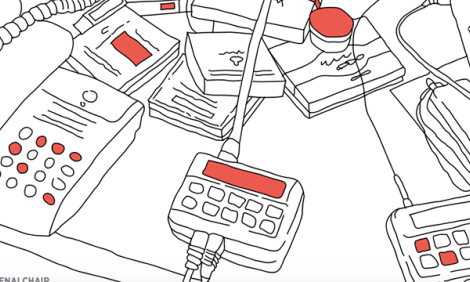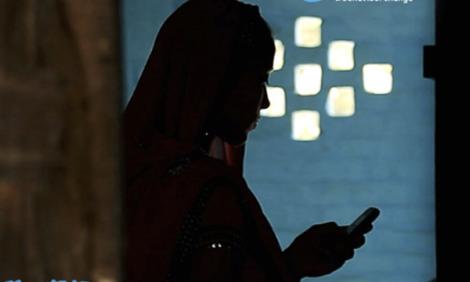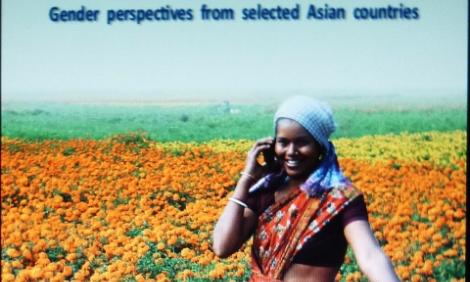
Publication
Internet use barriers and user strategies: perspectives from Kenya, Nigeria, South Africa and Rwanda
The introduction of OTT services that replace regular messaging applications in built into a phone, definitely has an impact on internet use. OTT services have become the main entry point to the Internet for most users in the prepaid mobile environment that characterises most African markets. This comparative country study, based on focus groups conducted in November 2016 in Kenya, Nigeria,…

Feminist talk
The (mobile) games women play
Games on mobile phones are often a disregarded area of study, because it is relatively cheap and less glamorous than video games. But global consumer spending on mobile gaming in 2015 was estimated to be worth 34.8 billion dollars, and there have been several reports talking about how India is on the ‘verge of a mobile gaming boom’. What the numbers often fail to mention is that a large chunk of…

Publication
Mobile Phone: A Public Tool (Civic Participation, Education and Health)
This study led by Digital Empowerment Foundation analyses 14 projects that are active in India in the arena of civic participation, education and health, and examines its impact on women stakeholders. One of the objectives is to understand how mobile phones are benefiting women frontline workers (teachers, auxiliary nurses) and mothers; however, the study's main findings are that accessibility…

Publication
Use of mobile phones by the rural poor; Gender perspectives from selected Asian countries
Acknowledging the differences in perceptions between genders, and between urban and rural dwellers, what must be realized is that these differences are often not unique to aspects related
to the mobile phone. The concerns, needs, and benefits ascribed to the mobile phone are more a reflection of people’s existing societal, familial, and gender norms prevalent in their environments, rather…
to the mobile phone. The concerns, needs, and benefits ascribed to the mobile phone are more a reflection of people’s existing societal, familial, and gender norms prevalent in their environments, rather…
Feminist talk
Interview: Adolescent Girls’ Mobile Phone Use in Bihar, Jharkhand, UP
Human rights organisation CREA conducted a study in Bihar, Jharkhand and Uttar Pradesh last year to assess the feasibility of delivering sexual and reproductive health information through mobile phones to adolescent girls. The study was a part of the “It’s My Body” programme held in collaboration with 15 local community-based organisations for girls aged 12 to 18 years. The findings of the study…
Publication
Implicating mobile phones in violence against women: What’s gender got to do with it?
This paper gives an analysis of women and men’s differential access and use of the mobile phone and how through it gender stereotypes are reinforced. During a four year study in Zambia, it emerged that although there were clear advantages that have come as a result of mobile phones some negative social impacts which reinforce gender stereotypes and power relations and subsequently result in…

Feminist talk
New mobile app for sexuality research pulled back over privacy concerns
Melissa Ditmore reflects on release and subsequent pulling back of new application designed to collect data on sexual activity by Kinsey Institute in the USA. She outlines privacy concerns raised and how these holes can jeopardize users data. She also makes a make a case how this app once privacy gaps are fixed can assist to document unwanted and often under-reported sexual experiences, such as…
Publication
Take Back The Tech! Be safe
The Take Back the Tech! Be Safe website section offers tips and ideas on steps women and girls can take to make their online experiences safer. It addresses security issues regarding privacy (emails, online chats, password protection, mobile phones), prevention of cyberstalking or secure online browsing.
Publication
Pakistan: Violence against Women and ICT
Access to mobile technology is increasing rapidly in Pakistan, and women are also gaining access, albeit at a slower rate than men. Kyla Pasha examines how mobile technology is ripe for use in strategies of empowerment, as long as access to technology is accompanied by training and orientation.




